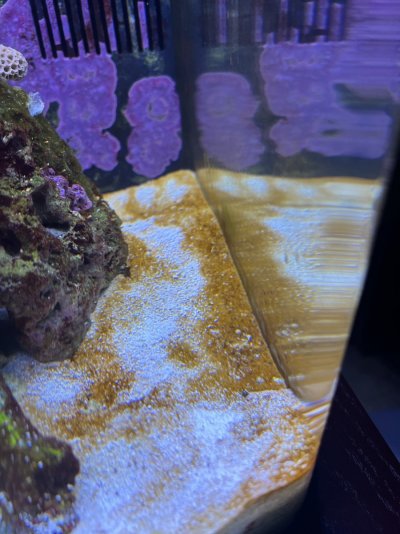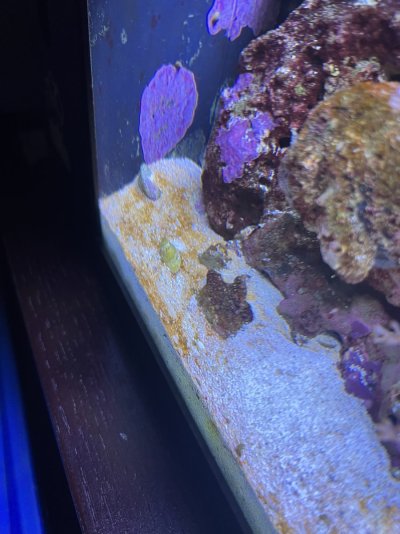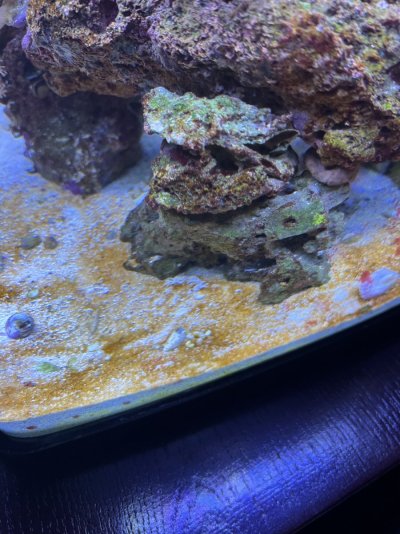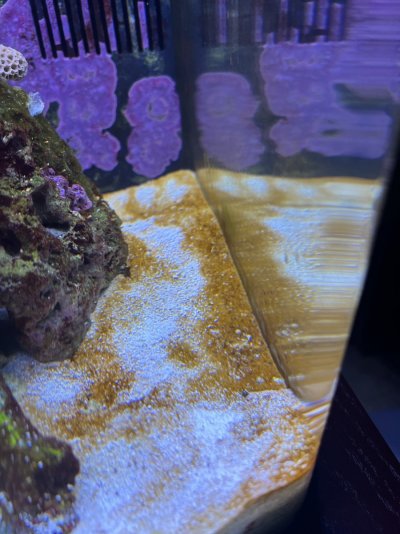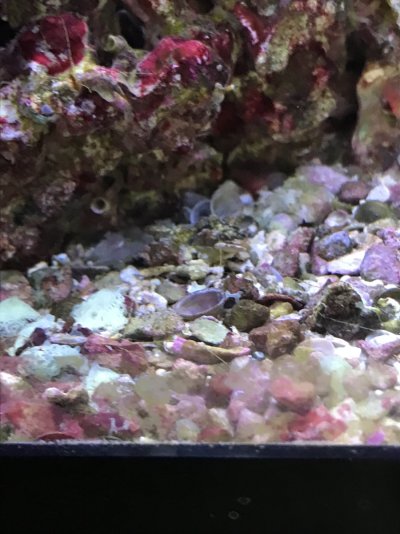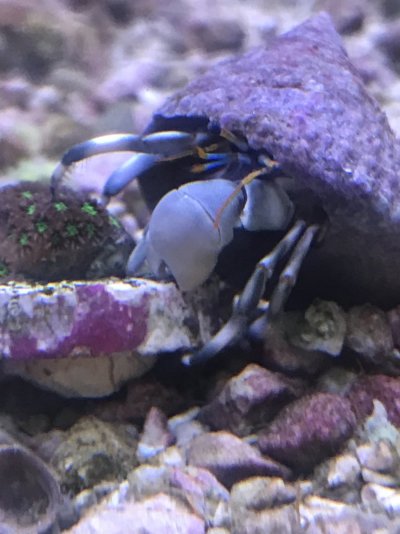Can anyone tell me what is this on my sand? Have tried everything and nothing seems to work. From lights out to barely feeding to chemiclean , vibrant even siphoning the sand blowing the sand and it keeps coming back.
So I ask myself does the sand in the aquarium have to get replaced? Don’t know what to do any more
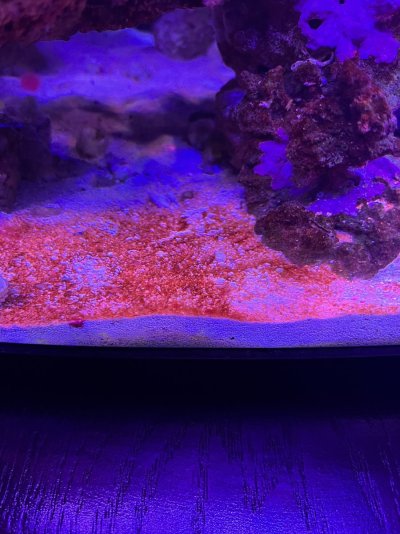
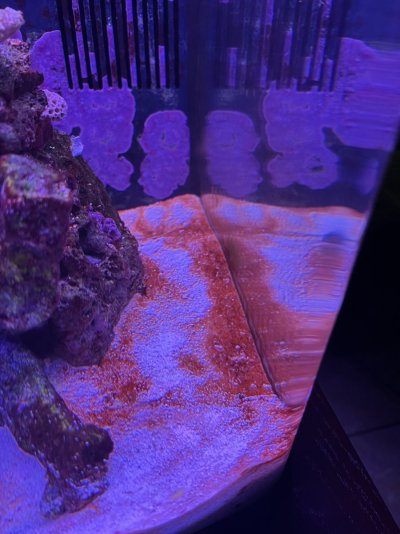
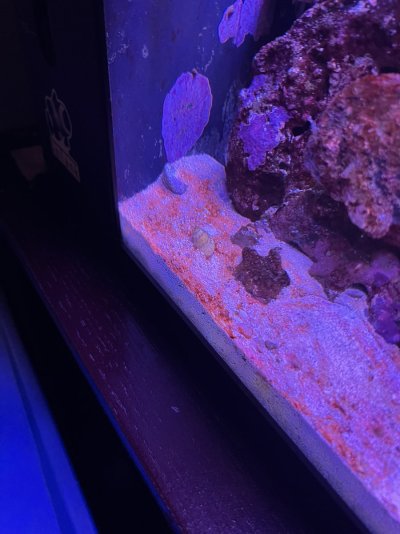
So I ask myself does the sand in the aquarium have to get replaced? Don’t know what to do any more









